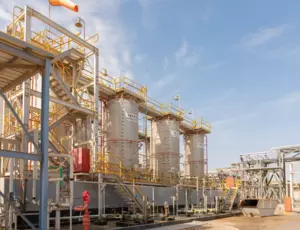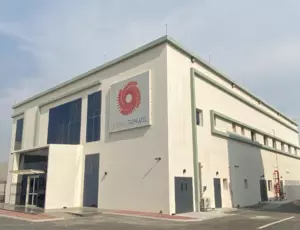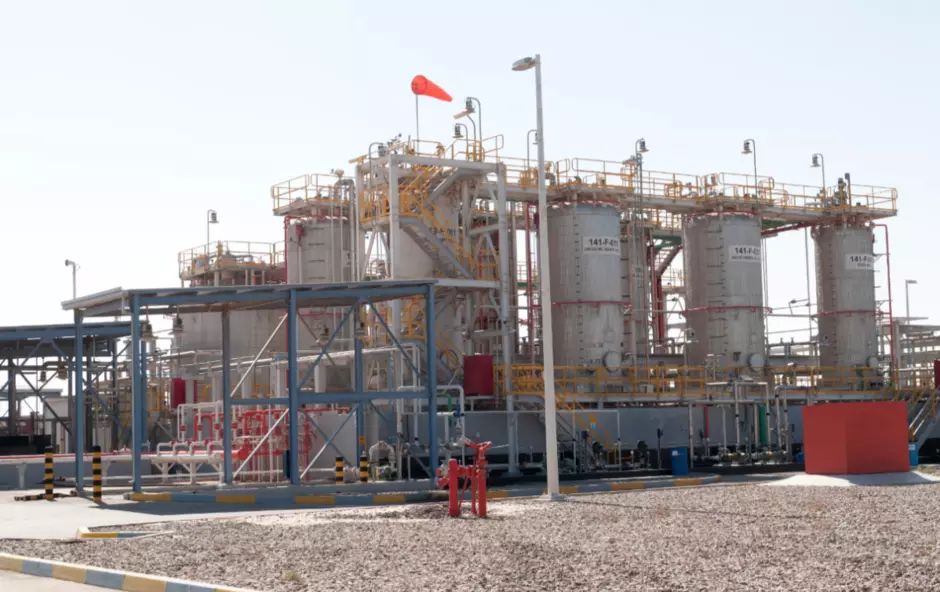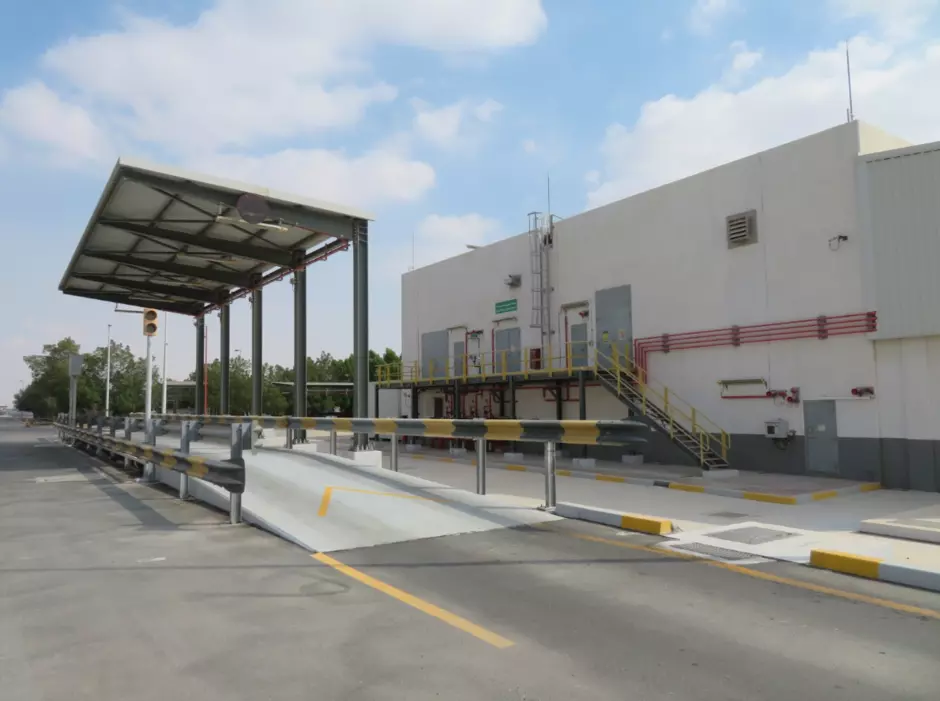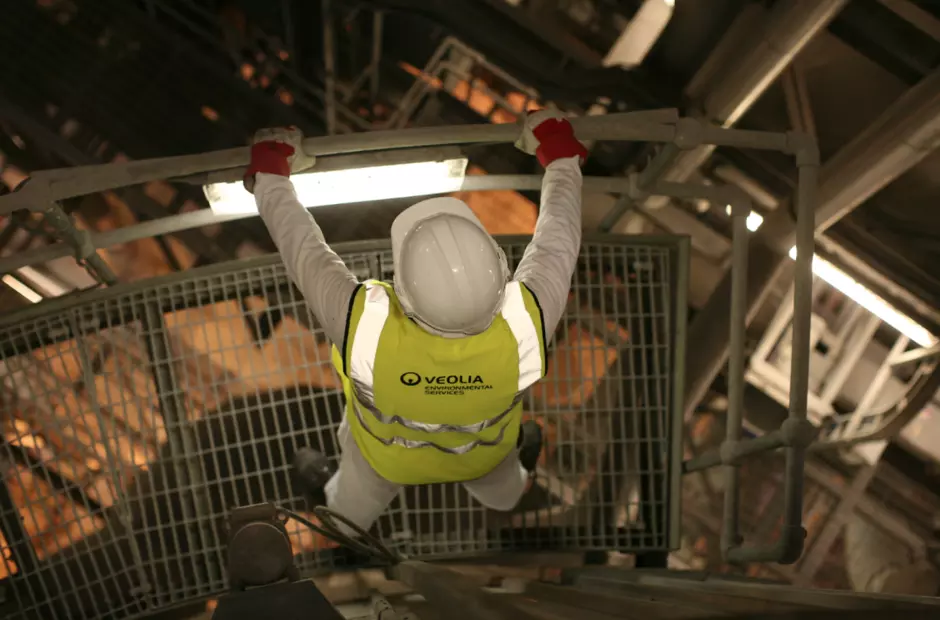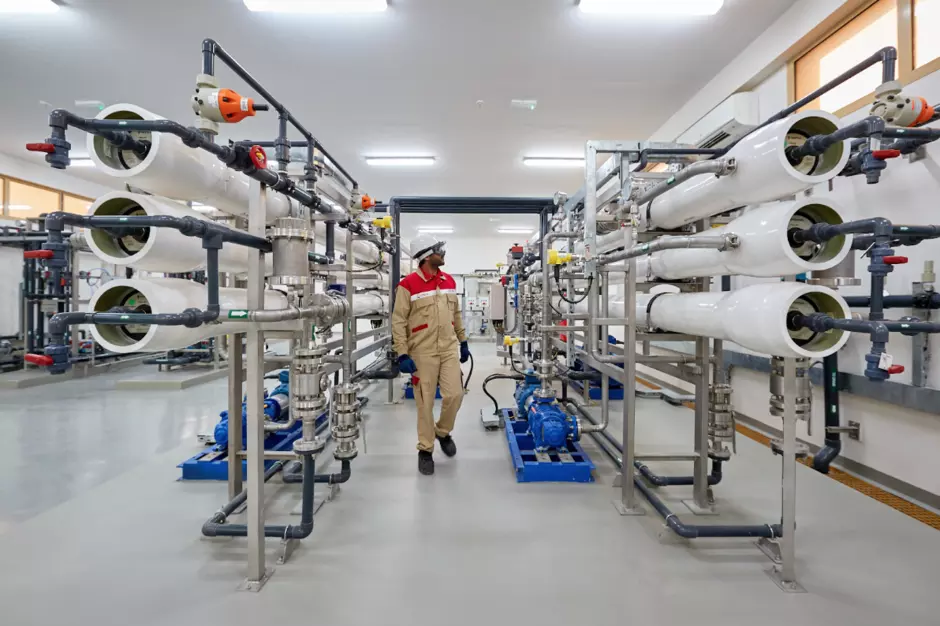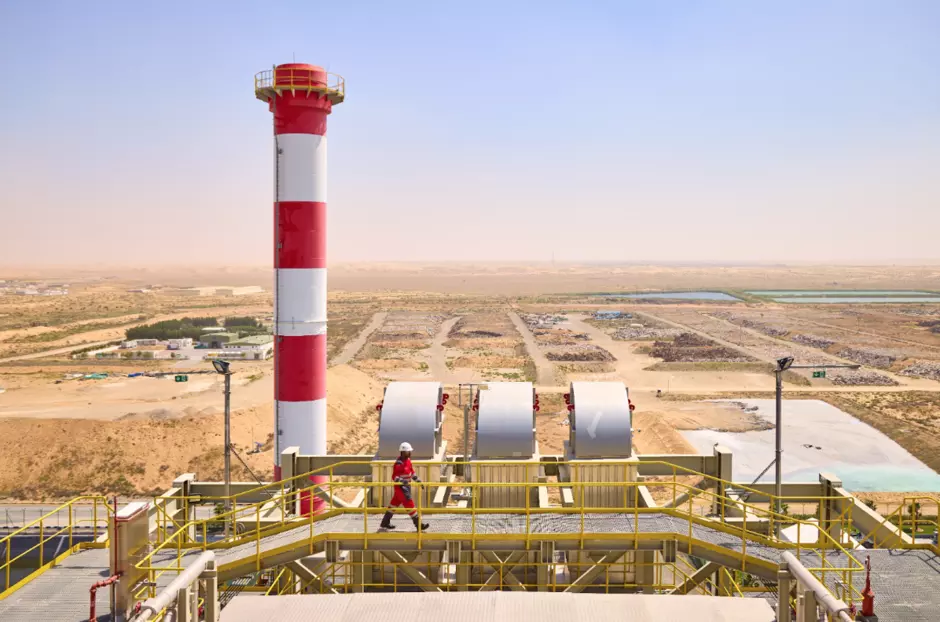The Challenge
With the rapid development of the global petroleum industry, the harmless treatment of oil sludge has become a critical challenge for ecological preservation and resource regeneration.
Environmental factors, including extreme temperatures and dust contamination, create significant operational hurdles in handling and storage. Technical challenges arise from complex waste composition and equipment limitations, while operational issues include handling difficulties, storage constraints, and transport limitations. Cost factors present significant challenges through high treatment expenses, equipment investment, and operational costs. Infrastructure needs, including specialized facilities, adequate storage capacity, and appropriate treatment capabilities, add another layer of complexity.
These interconnected challenges require innovative solutions and comprehensive management approaches tailored to regional conditions.

Solutions
Veolia offers comprehensive solutions for oily sludge management, focusing on resource recovery, environmental compliance, and cost-efficiency.
Using advanced technologies like thermal desorption, centrifugation, and bio-remediation, Veolia separates oil, water, and solids to maximize oil recovery and reduce waste. The treated water can be reused or safely discharged, while recovered oil is recycled. Solid residues are stabilized or converted into alternative fuels. Veolia also provides mobile treatment units for on-site operations, minimizing transportation risks. Their integrated approach ensures reduced environmental impact, regulatory compliance, and optimized operational performance, making them a global leader in sustainable oily sludge treatment and waste valorization.
Thermal Desorption Units (TDU)
Veolia uses Thermal Desorption Units to control heat and separate hydrocarbons, water, and solids from oily sludge. The process recovers valuable oil, reduces hazardous waste volume, and allows clean solids to be reused or disposed of safely.
It is ideal for treating refinery sludge, tank bottoms, and drill cuttings. TDUs offer an environmentally sound solution with minimal residue, supporting circular economy goals and strict regulatory compliance.
Mobile Sludge Dewatering Units
Veolia deploys mobile dewatering systems using centrifuges and filter presses to reduce sludge volume on-site. These units separate solids from liquids efficiently, reducing transportation costs and environmental risks. The mobile solution is flexible, scalable, and ideal for remote or temporary operations such as tank cleaning or shutdowns.
Treated water can be reused or discharged, while solids are further treated or disposed of in accordance with local regulations.
Bioremediation and Landfarming
Veolia applies bioremediation techniques, including landfarming, to treat oily sludge through natural microbial degradation. This low-cost, eco-friendly method is ideal for non-hazardous sludge from oil refineries or storage tanks. By optimizing moisture, nutrients, and aeration, Veolia enhances microbial activity to break down hydrocarbons over time.
This method minimizes environmental impact and provides a sustainable alternative to incineration or landfill, especially in warm climates with ample land.
Sludge Incineration with Energy Recovery
Veolia operates advanced incineration facilities that treat hazardous oily sludge while recovering energy. The high-temperature combustion process ensures complete destruction of hydrocarbons, reducing waste volume by up to 90%. Heat generated is recovered to produce steam or electricity, supporting sustainable energy use. Emissions are tightly controlled with state-of-the-art scrubbing systems, ensuring compliance with strict environmental standards.
This solution is suitable for high-contamination or non-recoverable sludge streams.

Veolia's oily sludge management uses AI, digital twin systems, and IoT sensors for real-time analytics. Our sophisticated recovery systems maximize resource value through advanced oil recovery and water reclamation, while innovative treatment technologies incorporate nano-filtration, ultrasonic treatment, and biological processing.
The facilities feature robust safety measures with automated handling and comprehensive monitoring systems, supported by rigorous quality control and environmental protection measures. Process automation ensures optimal performance through integrated control systems, while our modular infrastructure design enables scalable, flexible operations adapted to specific client needs and regional conditions.Refineries today need to mitigate risk and come up with increasingly efficient ways to maximize business continuity.
Feature
details
monitoring points
Water Recovery Rate
digital coverage
tons daily processing
treatment lines
Key
figures
Benefits & Value Proposition

Health Risk Mitigation
Veolia's oily sludge management system integrates advanced safety protocols, containment, and monitoring with enhanced workplace protection and automated processes to minimize health risks and ensure worker safety through continuous surveillance and risk mitigation.

Sustainable Water Reuse
Veolia's oily sludge management uses advanced water recovery systems with multi-stage separation (filtration, membrane, chemical treatment) and purification methods. Real-time monitoring provides high-quality water for industrial use, cooling, or processes, reducing environmental impact, cutting costs via reuse, and supporting sustainable water management, crucial in water-scarce areas.

Agricultural Value Creation
Veolia transforms oily sludge into agricultural fertilizer using advanced organic matter separation and nutrient recovery. Our process ensures product quality through rigorous testing, thermal treatment, and chemical stabilization, delivering safe, effective fertilizer that supports sustainable agriculture and circular economy principles.

Quality Assurance
Veolia's quality assurance program integrates advanced testing protocols with continuous monitoring systems, ensuring comprehensive performance validation while maintaining strict compliance verification and quality certification standards throughout the oily sludge management process.
Case studies
Discover the experiences of different players in our region



